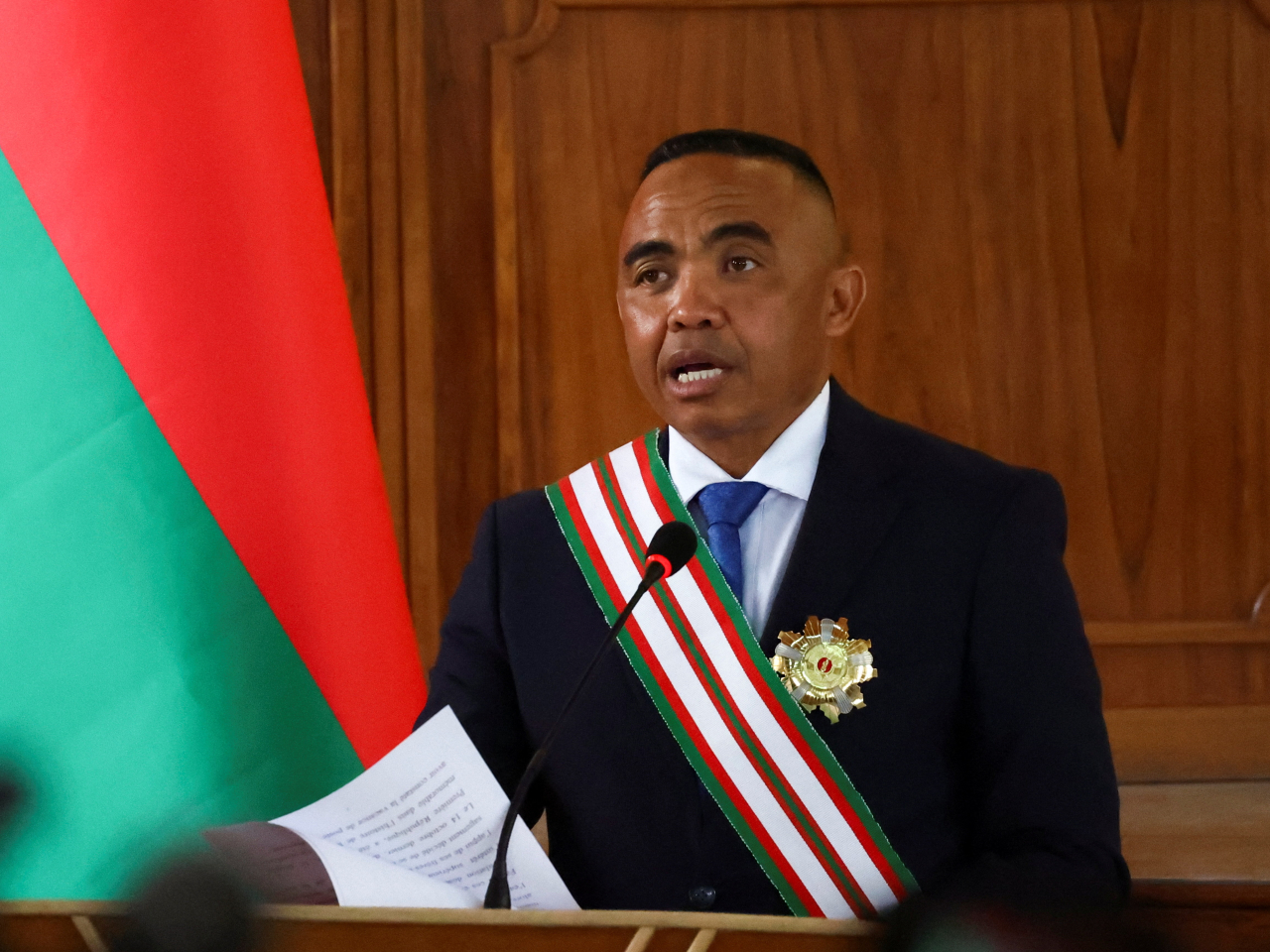Madagascar's coup leader colonel Michael Randrianirina was sworn in as president on Friday to cheers, blaring trumpets and raised swords, days after taking control of the island nation in the wake of youth-led protests that forced out his predecessor.
Ex-leader Andry Rajoelina, whom lawmakers impeached after he fled abroad at the weekend, has condemned the takeover and refused to step down while in exile.
The African Union and the United Nations Secretary-General Antonio Guterres have condemned the coup, which came after weeks of "Gen Z" protests initially triggered by severe, chronic power and water shortages.
"I will fully, completely, and justly fulfil the high responsibilities of my position as President of the Republic of Madagascar," Randrianirina said in a ceremony.
"I swear that I will exercise the power entrusted to me and dedicate all my strength to defending and strengthening national unity and human rights," he added, before military officers raised swords and blew trumpets to mark the handover.
Randrianirina said that a committee led by the military will rule for up to two years alongside a transitional government before organising new elections, although analysts doubt this can be guaranteed.
Underlying Madagascar's periodic upheavals is a young population -- the average age is under 20 -- and some of the world's worst poverty, which blights the lives of three-quarters of its roughly 30 million people.
Despite exports of prized commodities such as vanilla, nickel, sapphires and the white pigment ilmenite, the Indian Ocean island's average income is barely US$600 a year, while prices of basic goods such as the staple rice have spiralled.
Between its independence in 1960 and up to 2020, GDP per capita plunged by nearly half, according to the World Bank, making it one of the few nations to have become worse off over that period. (Reuters)





